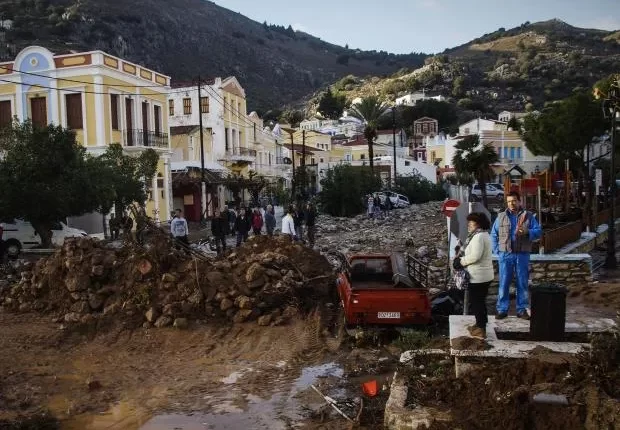Greece has witnessed the worst floods ever in September, which destroyed the rich region, washed away farms, roads and railways, and killed 16 people.
It was the second big flood in three years to affect Thessaly, which shows a pattern of more severe weather in Europe.
Dimitris Kouretas, the governor of Thessaly, a central region in Greece, mentions a number of projects that aim to prevent flooding, which have been neglected by the previous administrations.
These include building dams to store water in the mountains, clearing the river channels, and getting rid of the remains of previous floods. He said some of these projects stalled for as long as two decades.
According to interviews with twelve experts in disaster management, government officials and environmentalists, Greece’s response is lagging behind the fast-growing frequency of extreme weather events, hindered by factors such as bureaucracy, inaction and ineffective climate adaptation techniques.
After a severe storm that caused flooding in Thessaly in 2020, Greece’s conservative government vowed to avoid a similar catastrophe in the future.
The world is becoming more vulnerable as the climate-related risks increase, including in the eastern Mediterranean, according to a report by the United Nations Environment Program (UNEP) last month. It estimated that there is a huge gap in funding for adaptation, ranging from $194-366 billion.
Thessaly, a region with a rich plain surrounded by Mount Olympus, was flooded by 18 months’ worth of rain in four days after Storm Daniel, following a long heatwave that caused deadly wildfires in Greece.
These events, which are becoming more common due to climate change, affect the country’s economy that relies on tourism and farming.
The authorities are being investigated for their possible failure to prevent the disaster that cost over 2 billion euros.
Greece, which has the highest debt-to-GDP ratio in the euro zone, allocated an extra 600 million euros for disaster relief measures this year.
The government said in September that it would increase the yearly funds for natural disasters from 2024 to 600 million euros, but officials admit it is not enough. Mitsotakis asked the EU to add more money to its solidarity fund and help countries deal with the effects of climate change.


